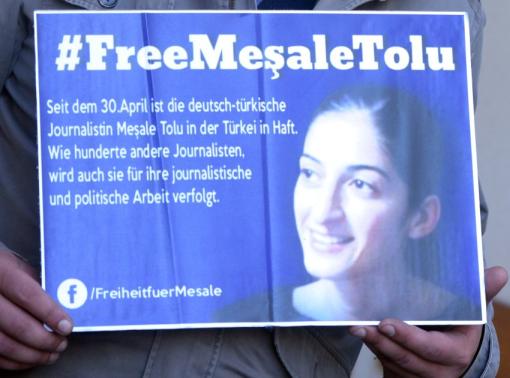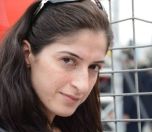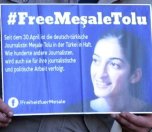Click to read the article in Turkish
First hearing of the trial of Etkin News Agency’s translator Meşale Tolu is held at İstanbul 29th Heavy Penal Court in Silivri today (October 11).
In her statement for defense, Tolu said, “The anonymous witness giving deposition about me doesn’t even know my name. The accusations are baseless and made up. I reject the accusations against me. I have been targeted by police for working as translator at ETHA”.
According to the indictment, Meşale Tolu is being charged with “being a member of an armed terror organization” and “propagandizing for a terror organization”.
18 detainees 15 of whom are detained on remand along with Tolu are being tried over “being a member of the Marxist Leninist Communist Party or propagandizing for it”.
Anonymous witness: I don’t know her but she is member of an organization
The evidence against her are listed as “a large number of digital material, books, magazines and documents related to the organization” in the indictment. Besides, she is accused of attending the commemoration of Suphi Nejat Ağırnaslı / Paramaz Kızılbaş.
The indictment also includes an anonymous witness.
The anonymous witness nicknamed “Eylül Kızılbaş” had said that he didn’t know Meşale Tolu but he knew she was a member of an [illegal] organization in his deposition on May 22, 2015.
What happened?
German citizen Meşale Tolu was taken into custody in a house raid conducted on April 30, 2017.
Referred to court on May 5, Tolu was arrested by İstanbul 9th Criminal Judgeship of Peace on charge of “being a member of an illegal organization”. She is in Bakırköy Women’s Prison.
Tolu’s husband Suat Çorlu is detained on remand as well. The couple who have a child aged 3 are in prison with them by turns. (AS/TK)






132.jpg)


